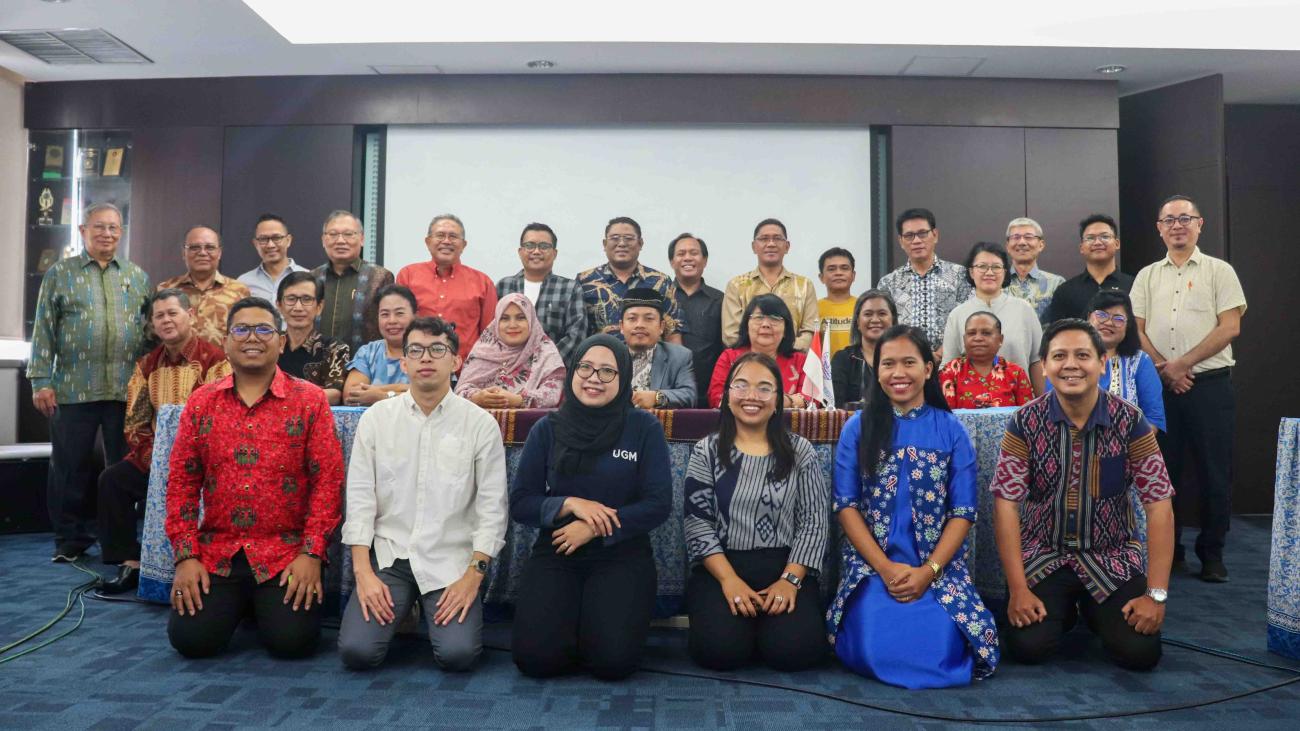Interfaith leaders in Indonesia pledge to work towards combating AIDS

Jakarta, Indonesia: The Action Together in Combating HIV and AIDS in Asia (ATCHAA) programme of the Christian Conference of Asia (CCA), in collaboration with the Communion of Churches in Indonesia (PGI) and the Indonesia Interfaith Network on AIDS (INTERNA), organised an interfaith consultation on HIV and AIDS from 26 to 28 August 2024.
The consultation was held at the headquarters of the Communion of Churches in Indonesia (PGI) in Jakarta, Indonesia.
Thirty participants representing various religious communities across Indonesia, including Buddhist, Christian, Confucian, Hindu, and Muslim leaders, attended the consultation, marking a significant step forward in addressing HIV and AIDS through interfaith dialogue and collaboration in Indonesia.
Rev. Jacklevyn Frits Manuputty, General Secretary of PGI, in his opening address, remarked that the challenge of addressing HIV and AIDS is not one that can be solved individually. He emphasised that responding to the widespread challenges of HIV and AIDS requires a united effort from all faith communities, who must come together collaboratively to combat and overcome this pressing issue.
Dr Ronald Lalthanmawia, Programme Coordinator for ATCHAA of CCA, and Dr Alphinus Kambodji from YMCA Indonesia updated participants on the current situation of HIV and AIDS in Asia and the Pacific regions.
Focusing on Indonesia, approximately 540,000 people are currently living with HIV, but only a few have access to treatment. The number of people newly diagnosed with HIV decreased by 3.6% in 2022, with 24,000 new cases. The most prevalent mode of HIV infection in Indonesia is sexual transmission, accounting for 89% of cases.
Participants acknowledged the stigma and discrimination that persist within faith communities and discussed the challenge of addressing HIV from a faith perspective, given its association with sin.
Aan Rianto, founder of Jaringan Equals Indonesia, facilitated a session on responding to stigma and discrimination, highlighting the cultural, societal, religious, and legal barriers that need to be addressed by faith leaders to create inclusive communities.
The participants were introduced to the SAVE approach—Safer Practices, Access to Treatment, Voluntary Counselling and Testing, and Empowerment. Workshop sessions were facilitated to develop strategies for implementing the SAVE approach within faith communities.
Rev. Jimmy Sormin from PGI focused on identifying and overcoming barriers, and participants explored ways to break down these obstacles and build bridges within their communities. The lack of education on sex and sexuality was identified as a critical area where faith communities need to become more open and engaged.
Organisations such as the AIDS Ministry of the Huria Kristen Batak Protestan (HKBP) and YAKKUM shared best practices, and participants contributed their experiences and strategies.
The participants developed action plans aimed at strengthening interfaith initiatives and advocacy efforts, and they also underscored the need to revitalise the national faith-based network INTERNA and pursue strategic initiatives in the future.
The consultation concluded with the adoption of a public statement, read by faith leaders from different religions. United in their commitment, they pledged to work towards combating AIDS and achieving the goals of zero new infections, zero discrimination, and zero AIDS-related deaths.
The CCA, through its ATCHAA programme, continues to equip its member churches and councils, along with other interfaith organisations, to respond effectively to HIV and AIDS issues.
CCA has been active in the interfaith circle, promoting dialogues and discussions on HIV and AIDS issues. By initiating and supporting the establishment of the Asian Interfaith Network on AIDS (AINA), CCA has connected with and supported Christian, Muslim, Hindu, and Buddhist religious leaders in their fight against HIV and AIDS.










